Source:

BUSINESS DAY TV: Nigeria must drive exports to build up other revenue streams
by Transcript Services, February 1 2016,
2016-02-04 08:38:56.0
DIANNA Games is CEO of Africa @ Work
BUSINESS DAY TV: As our own budget looms in just over three weeks’ time, Nigeria is busy calculating its own shortfall for the year ahead as revenue from oil shrinks. It reportedly faces an $11bn deficit and is asking the World Bank and the African Development Bank for a loan of around $3.5bn. So what are the implications for Africa’s biggest economy and the foreign companies that do business there? Dianna Games is CEO of Africa @ Work. She joins us now on News Leader.
Dianna…so we had the Finance Minister Kemi Adeosun saying that they are discussing their options at this stage, they’re not applying for an emergency loan but it must be pretty dire in a country that gets most of its revenue from oil and what it faces in the year ahead?
DIANNA GAMES: Things are certainly looking tough for Nigeria. There was a figure that came out today saying that the oil revenue was 57% down in 2015, from the year before, that’s a serious knock for any economy. But the government is not lying down, they’ve introduced what is actually a record budget that’s almost double of the previous year’s budget under the previous administration hoping to almost work their way out of this crisis.
But of course what that has introduced is this enormous deficit and so the World Bank offers reasonably cheap finance compared to Eurobonds and the route to debt that many other African economies have looked at. It is possibly quite a sensible move, they need to spend their way into greater prosperity and there’s a huge foreign exchange crisis that needs to be addressed and hopefully this will start to unlock some of those problems and get the wheels moving in the economy again.
BDTV: Let’s hone in on this record budget and where exactly they’re looking to put capital to work because it’s primarily being directed at capital projects, so infrastructure spend in order to grow the economy. What do you make of the merit of that and the timeline that they’re going to have to work with in this regard?
DG: The thing with the capital projects...what the previous government did as the oil price went down, is they pulled back on capital projects. Now one of the main things that drives the dysfunction of the Nigerian economy is the lack of proper infrastructure. It’s created huge inefficiencies in the economy and so on, and so, it’s very important that the infrastructure is put in place. And the government has to look longer term and hope that at some point, maybe not that the oil price will bounce back but that other problems in the economy will have been rectified and that they will start seeing the results of that.
But infrastructure is a very important component of that and there are many plans on the table and for the future of that country they need to press forward. Perhaps not with all of them; maybe it is too ambitious to have that many capital projects on the table at this time. You might find a lot of this is going to have to go into some kind of recurrent spending, just by the necessity of the dire situation that they find themselves in. But time will tell.
BDTV: There have been suggestions that it should devalue the naira to cope with the impact of the weak oil price but at the same time when you’re borrowing in dollars that would really push up those debt servicing costs wouldn’t it?
DG: Not just the debt servicing costs, but also Nigeria being a very import-dependent economy, importing its fuel among many other things, food, a lot of very basic items…the government is mindful of the impact already of the economic crisis on Nigerians with inflation rising and so on and they are reluctant to push that any further. So there’s going to be a tension possibly with the World Bank on the conditions of this package because the International Monetary Fund (IMF) is very keen for the government to devalue but the president and the central bank have said at this stage...and it’s been months this discussion has been taking place since the last devaluation, which was last year, so it seems that for the moment that’s not likely but it might happen if push comes to shove in terms of what is demanded for this package to go ahead.
BDTV: In the interim then while the government tackles its infrastructure constraints, while it faces forex limitations, when it comes to doing business in Nigeria right now, just how much more challenging has it become and do you see disinvestment starting to happen as a result?
DG: It’s become extremely challenging. That also has a sectoral sort of impact. I know that consumer goods companies are battling with the foreign exchange shortage in particular because they are not able to source it through the central bank and its agencies. So a lot of people are really battling to get finance to get product into Nigeria and the black market rate is rising. So everything is getting more expensive but at the same time the government is looking for ways to build revenues and they are looking at for example doubling the VAT rate, which is very low at 5%.
But all of these things will have a knock-on effect. But on the positive side, the fight against corruption in Nigeria has also meant that a lot of leakages are being plugged in that economy and these are significant. This is not a couple of million dollars or even $1bn, we’re talking many billions of dollars that the government could save simply by stopping corruption and by stopping leakages in their economy such as smuggling, import wavers, tax wavers and all sorts of preferential treatment for various people. So that is on the positive side for a long term investment in the future of Nigeria.
BDTV: And some would also link the expected budget deficit with the mammoth fine handed out to MTN recently, you say they need to find new sources of income so VAT is one thing but they also need to broaden the economy...is this something that they’re doing?
DG: The nonoil economy is a presidential project. They are certainly looking at trying to develop the nonoil economy. One of the problems Nigeria has is the sheer size of the economy, of the number of people, of the market gaps, which makes it very difficult for them to create exports because almost everything that is produced in that country is soaked up into the local economy.
So there’d have to be very much an export drive to develop other revenues streams. So it’s not a question of the economy not being diversified, it’s a question of exports are not being diversified and that’s really where at some point, the focus has to be for this economy.
DIANNA Games is CEO of Africa @ Work
BUSINESS DAY TV: As our own budget looms in just over three weeks’ time, Nigeria is busy calculating its own shortfall for the year ahead as revenue from oil shrinks. It reportedly faces an $11bn deficit and is asking the World Bank and the African Development Bank for a loan of around $3.5bn. So what are the implications for Africa’s biggest economy and the foreign companies that do business there? Dianna Games is CEO of Africa @ Work. She joins us now on News Leader.
Dianna…so we had the Finance Minister Kemi Adeosun saying that they are discussing their options at this stage, they’re not applying for an emergency loan but it must be pretty dire in a country that gets most of its revenue from oil and what it faces in the year ahead?
DIANNA GAMES: Things are certainly looking tough for Nigeria. There was a figure that came out today saying that the oil revenue was 57% down in 2015, from the year before, that’s a serious knock for any economy. But the government is not lying down, they’ve introduced what is actually a record budget that’s almost double of the previous year’s budget under the previous administration hoping to almost work their way out of this crisis.
But of course what that has introduced is this enormous deficit and so the World Bank offers reasonably cheap finance compared to Eurobonds and the route to debt that many other African economies have looked at. It is possibly quite a sensible move, they need to spend their way into greater prosperity and there’s a huge foreign exchange crisis that needs to be addressed and hopefully this will start to unlock some of those problems and get the wheels moving in the economy again.
BDTV: Let’s hone in on this record budget and where exactly they’re looking to put capital to work because it’s primarily being directed at capital projects, so infrastructure spend in order to grow the economy. What do you make of the merit of that and the timeline that they’re going to have to work with in this regard?
DG: The thing with the capital projects...what the previous government did as the oil price went down, is they pulled back on capital projects. Now one of the main things that drives the dysfunction of the Nigerian economy is the lack of proper infrastructure. It’s created huge inefficiencies in the economy and so on, and so, it’s very important that the infrastructure is put in place. And the government has to look longer term and hope that at some point, maybe not that the oil price will bounce back but that other problems in the economy will have been rectified and that they will start seeing the results of that.
But infrastructure is a very important component of that and there are many plans on the table and for the future of that country they need to press forward. Perhaps not with all of them; maybe it is too ambitious to have that many capital projects on the table at this time. You might find a lot of this is going to have to go into some kind of recurrent spending, just by the necessity of the dire situation that they find themselves in. But time will tell.
BDTV: There have been suggestions that it should devalue the naira to cope with the impact of the weak oil price but at the same time when you’re borrowing in dollars that would really push up those debt servicing costs wouldn’t it?
DG: Not just the debt servicing costs, but also Nigeria being a very import-dependent economy, importing its fuel among many other things, food, a lot of very basic items…the government is mindful of the impact already of the economic crisis on Nigerians with inflation rising and so on and they are reluctant to push that any further. So there’s going to be a tension possibly with the World Bank on the conditions of this package because the International Monetary Fund (IMF) is very keen for the government to devalue but the president and the central bank have said at this stage...and it’s been months this discussion has been taking place since the last devaluation, which was last year, so it seems that for the moment that’s not likely but it might happen if push comes to shove in terms of what is demanded for this package to go ahead.
BDTV: In the interim then while the government tackles its infrastructure constraints, while it faces forex limitations, when it comes to doing business in Nigeria right now, just how much more challenging has it become and do you see disinvestment starting to happen as a result?
DG: It’s become extremely challenging. That also has a sectoral sort of impact. I know that consumer goods companies are battling with the foreign exchange shortage in particular because they are not able to source it through the central bank and its agencies. So a lot of people are really battling to get finance to get product into Nigeria and the black market rate is rising. So everything is getting more expensive but at the same time the government is looking for ways to build revenues and they are looking at for example doubling the VAT rate, which is very low at 5%.
But all of these things will have a knock-on effect. But on the positive side, the fight against corruption in Nigeria has also meant that a lot of leakages are being plugged in that economy and these are significant. This is not a couple of million dollars or even $1bn, we’re talking many billions of dollars that the government could save simply by stopping corruption and by stopping leakages in their economy such as smuggling, import wavers, tax wavers and all sorts of preferential treatment for various people. So that is on the positive side for a long term investment in the future of Nigeria.
BDTV: And some would also link the expected budget deficit with the mammoth fine handed out to MTN recently, you say they need to find new sources of income so VAT is one thing but they also need to broaden the economy...is this something that they’re doing?
DG: The nonoil economy is a presidential project. They are certainly looking at trying to develop the nonoil economy. One of the problems Nigeria has is the sheer size of the economy, of the number of people, of the market gaps, which makes it very difficult for them to create exports because almost everything that is produced in that country is soaked up into the local economy.
So there’d have to be very much an export drive to develop other revenues streams. So it’s not a question of the economy not being diversified, it’s a question of exports are not being diversified and that’s really where at some point, the focus has to be for this economy.
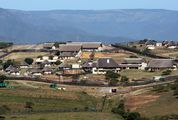
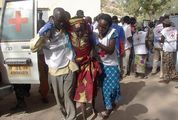
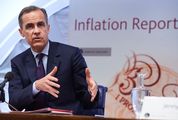
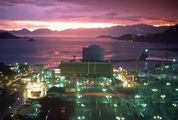
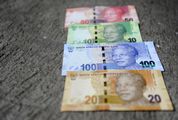

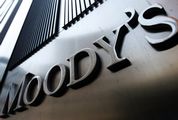
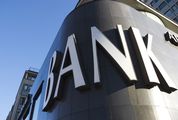
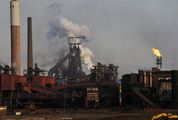









Login OR Join up TO COMMENT